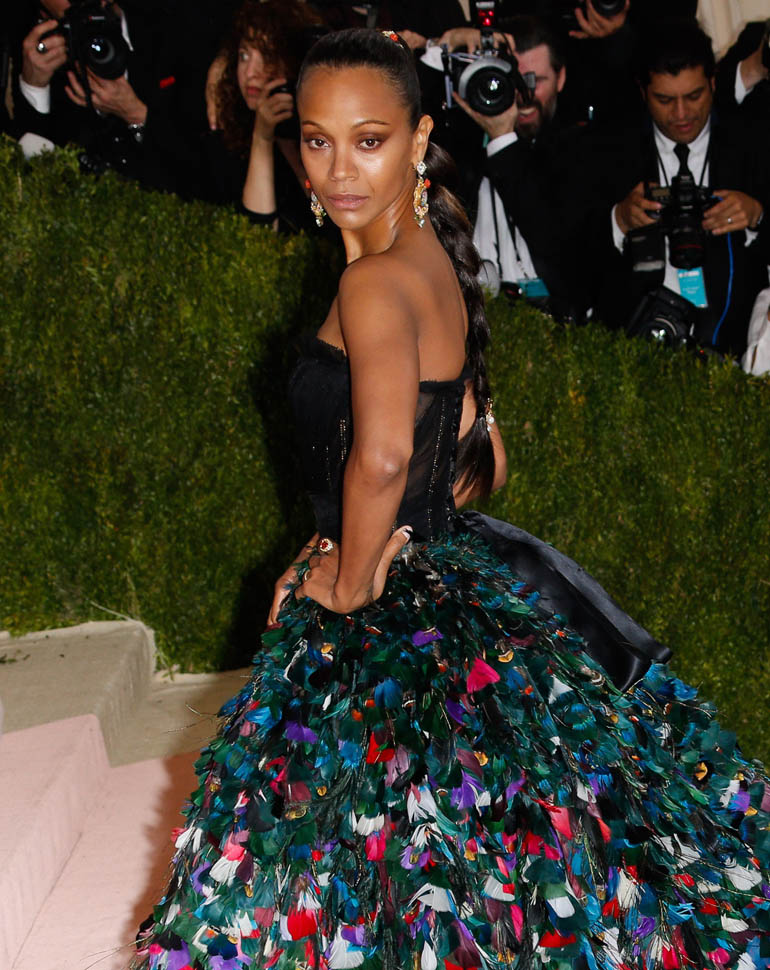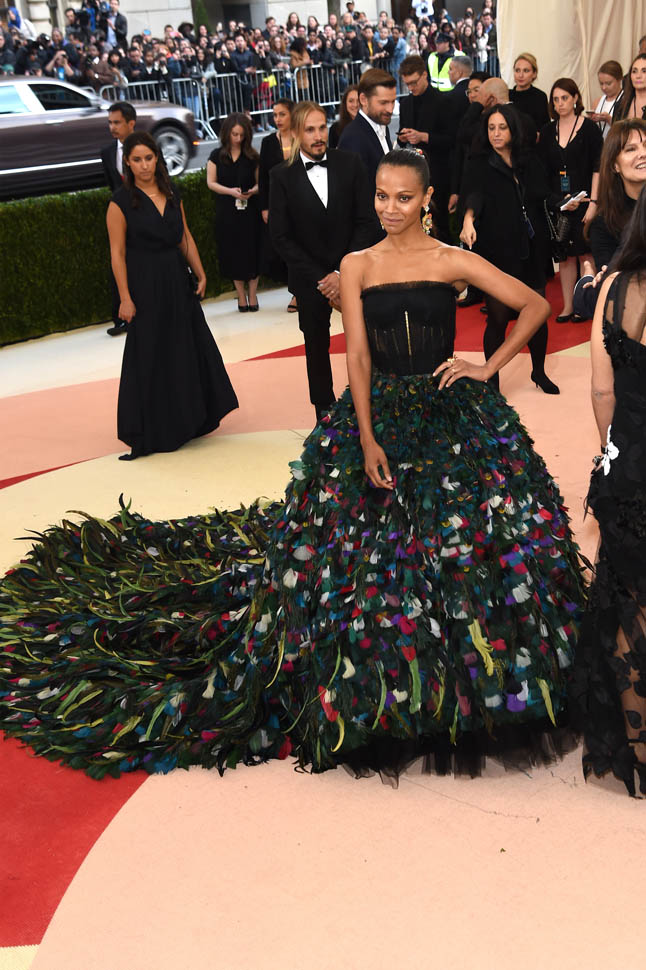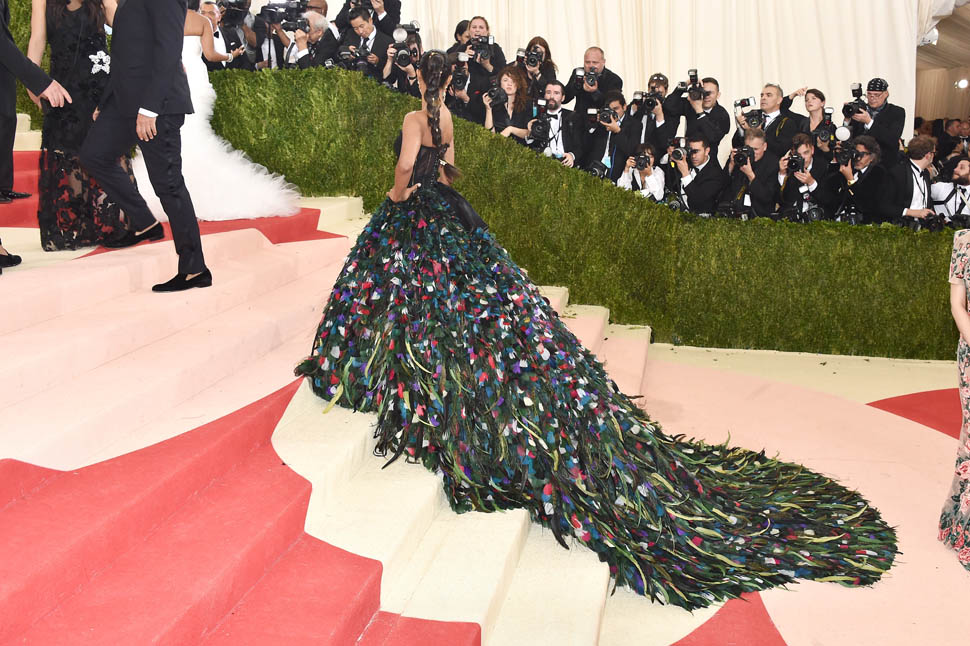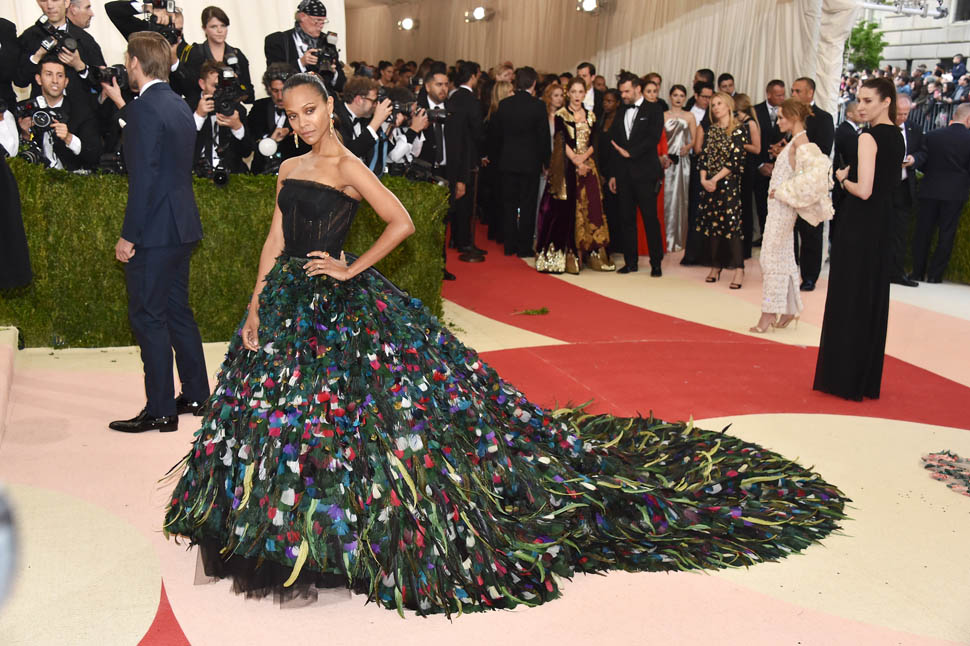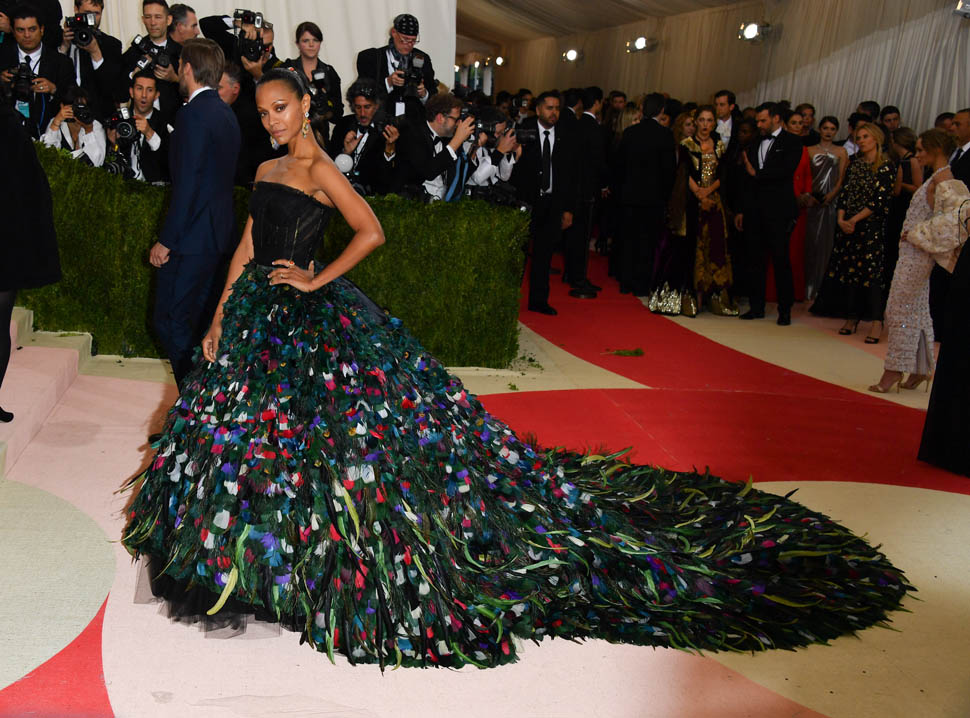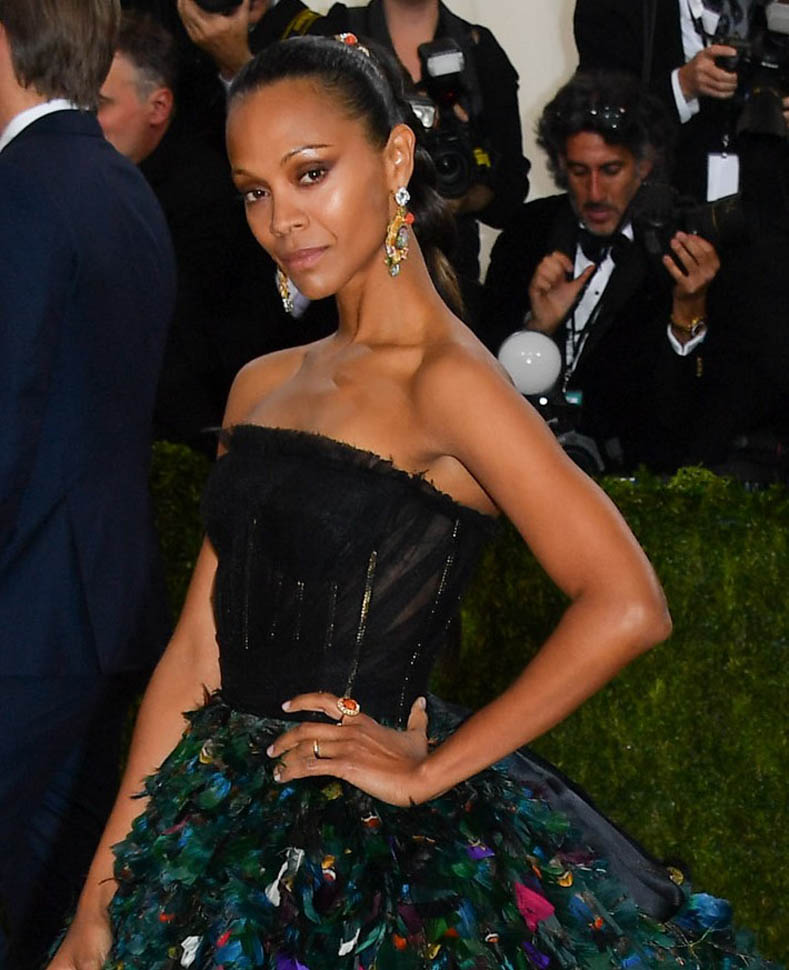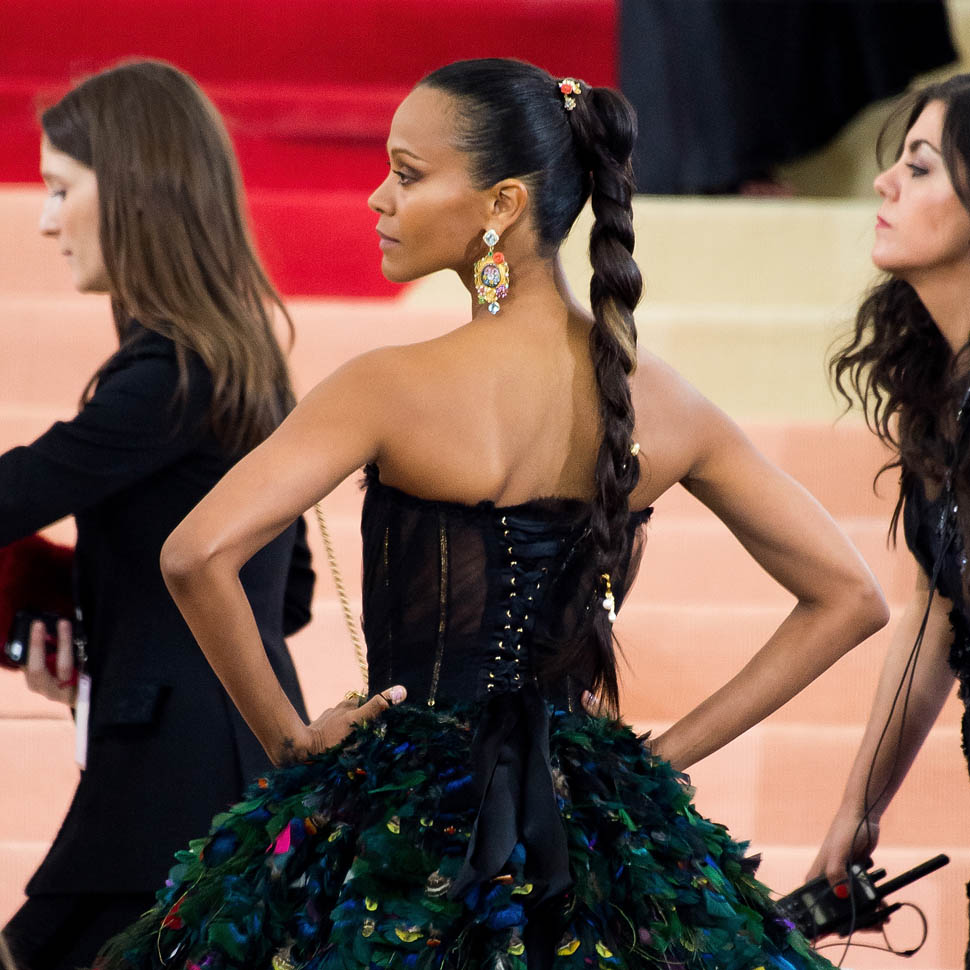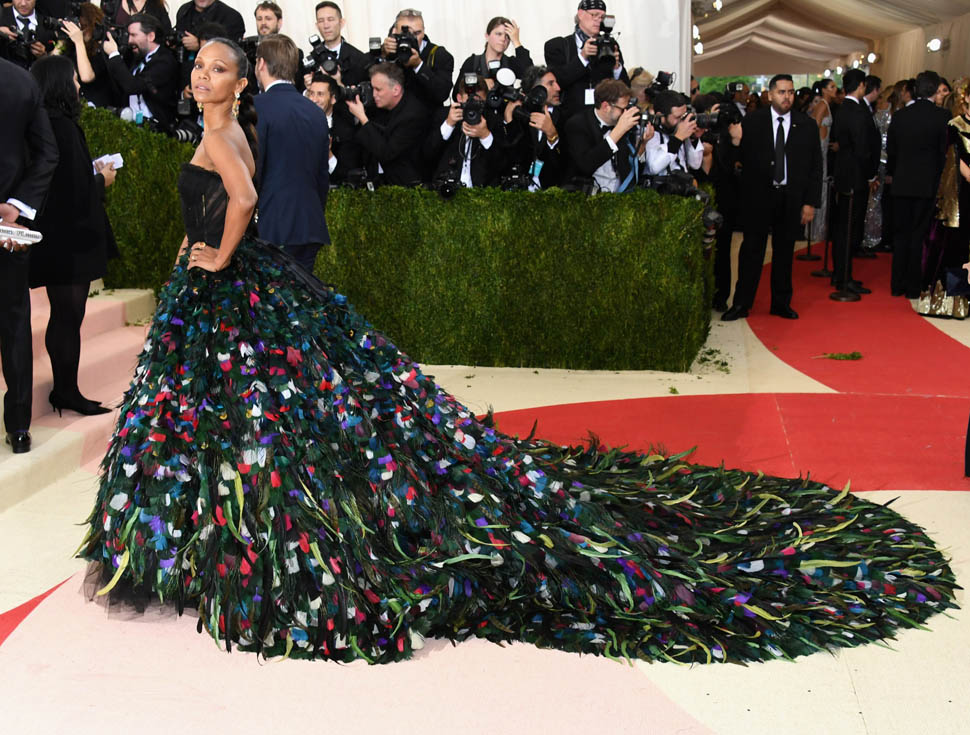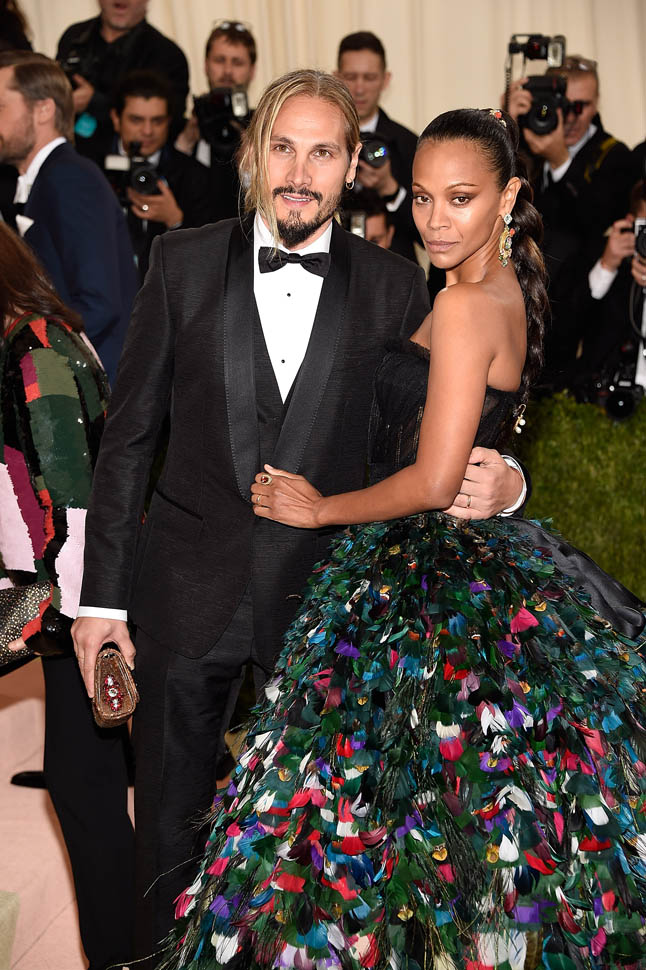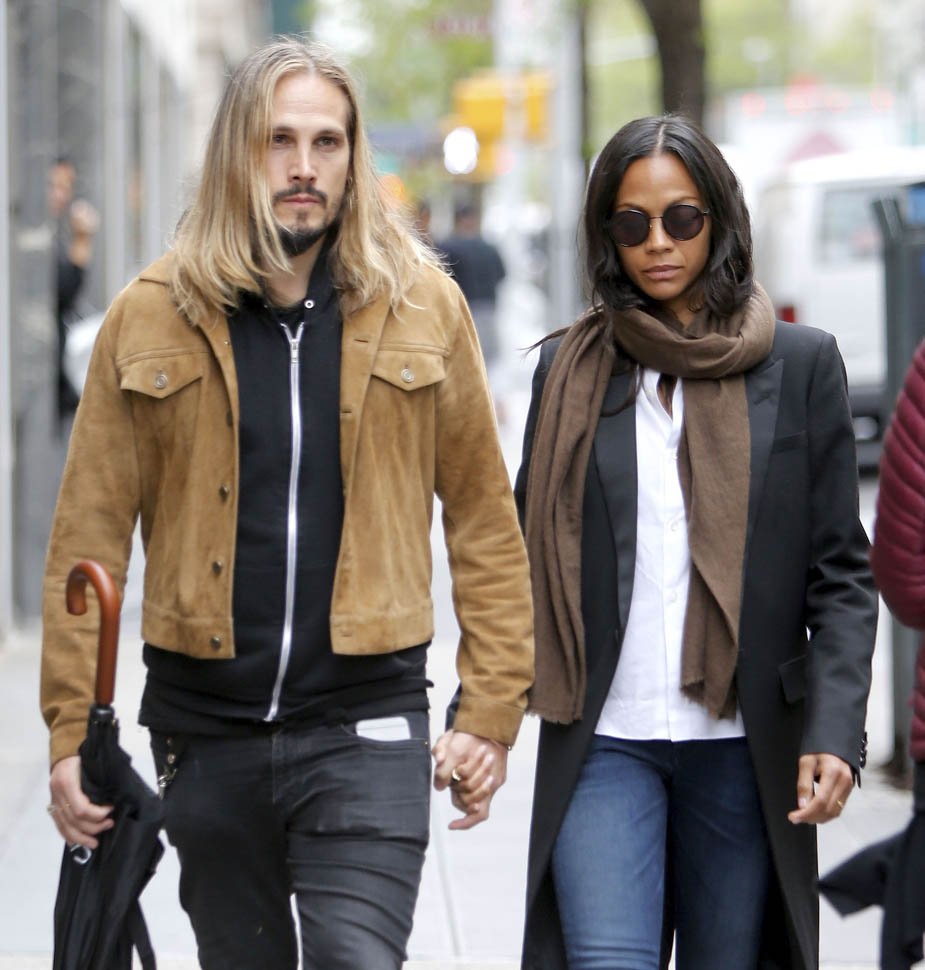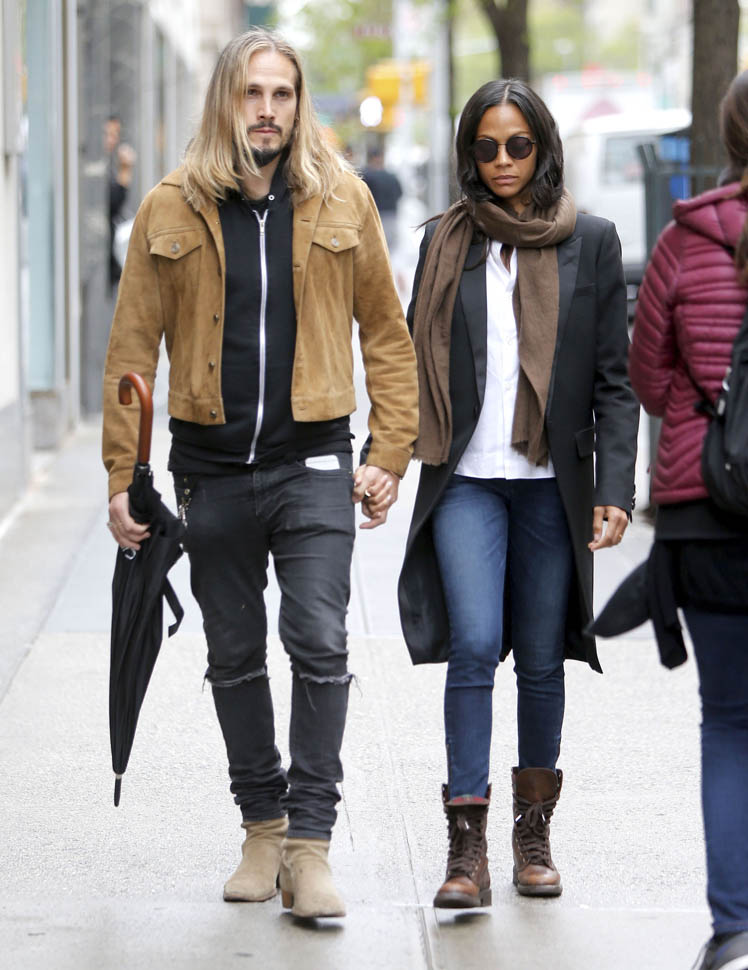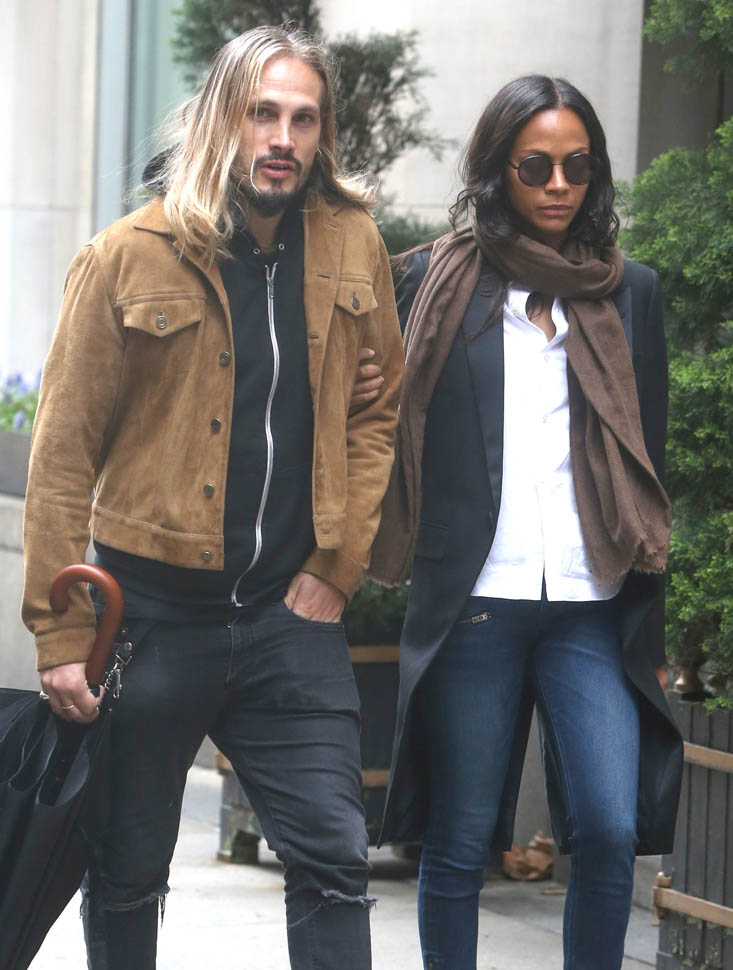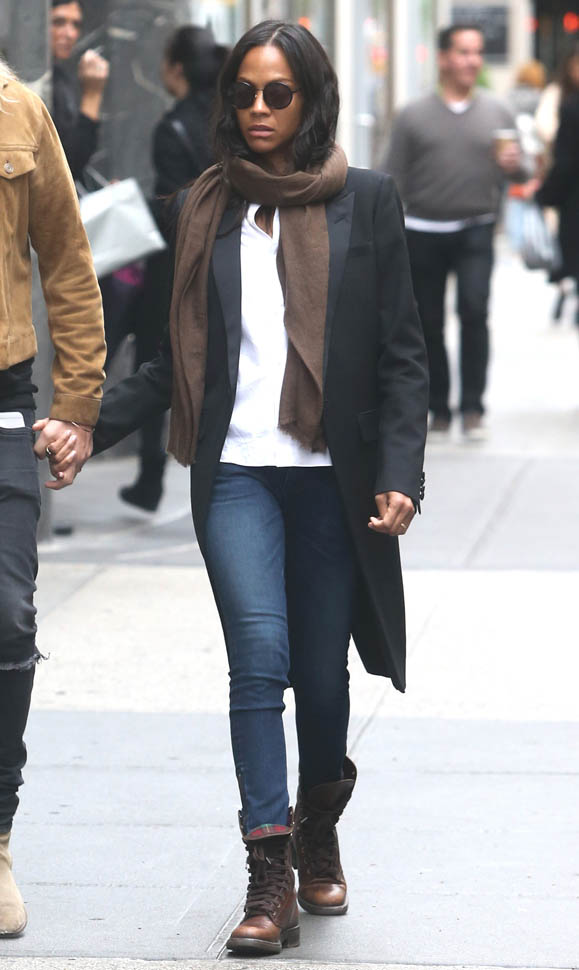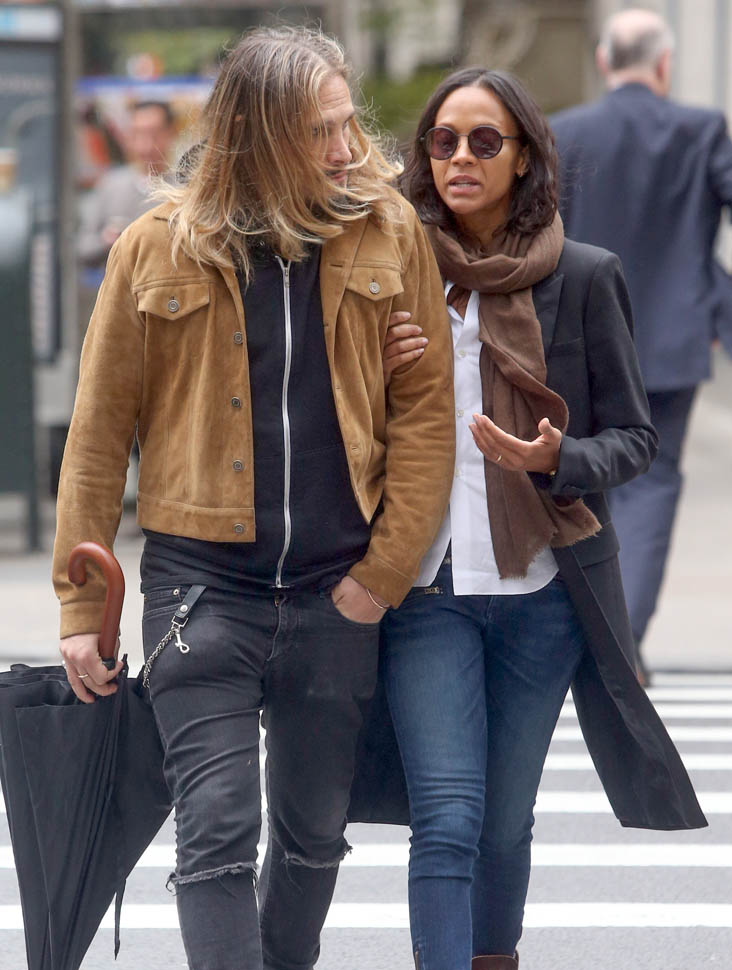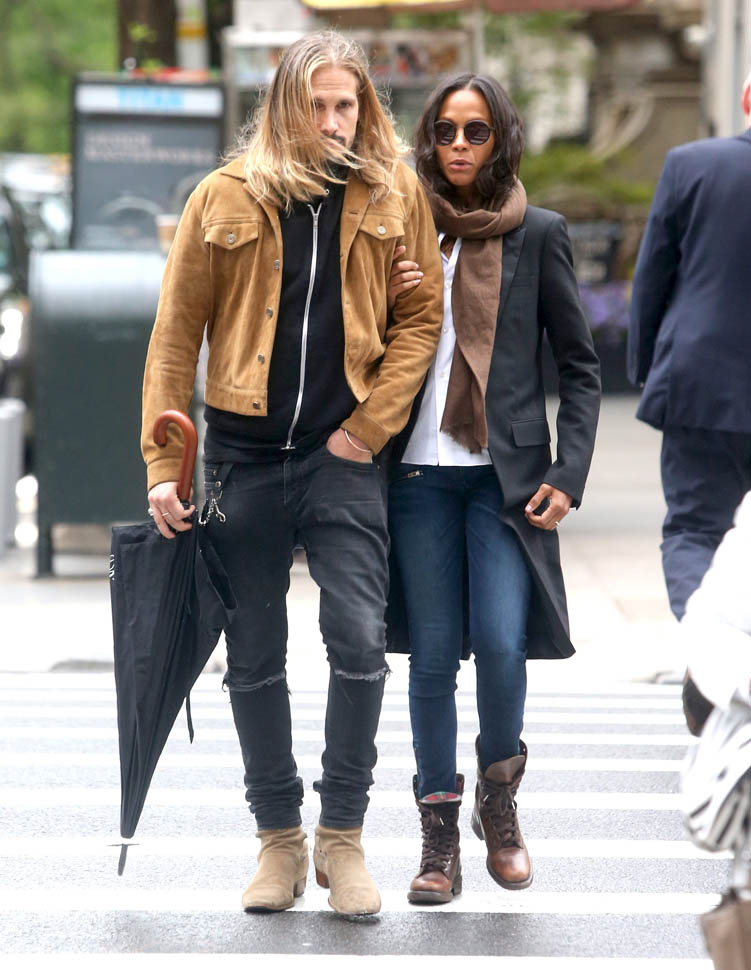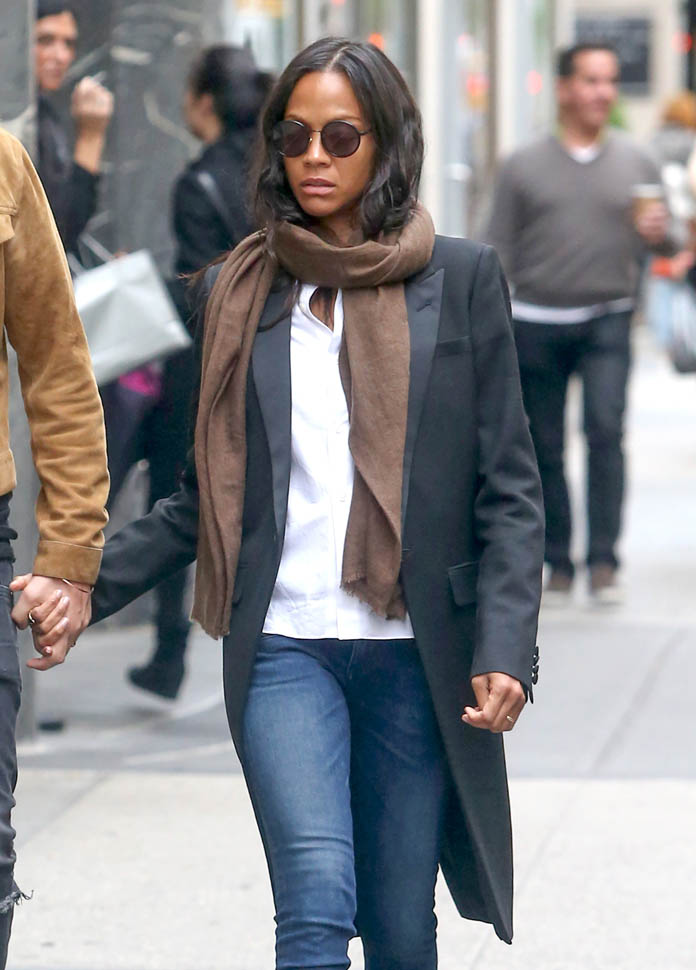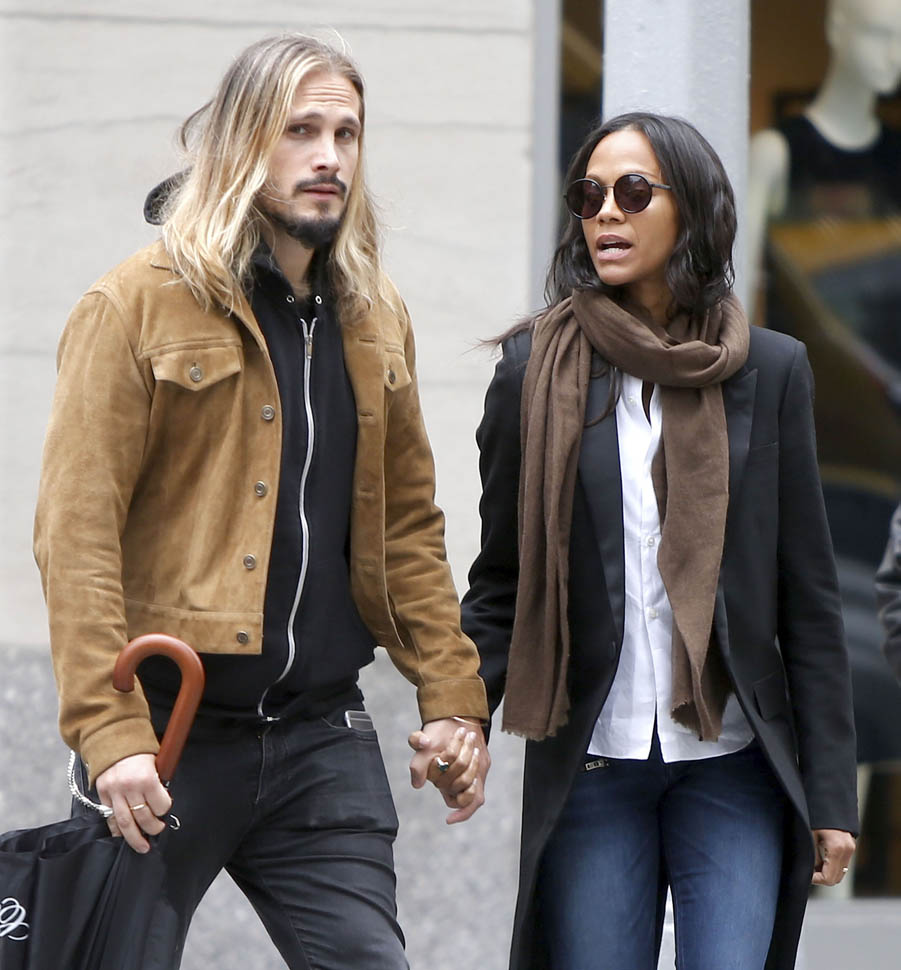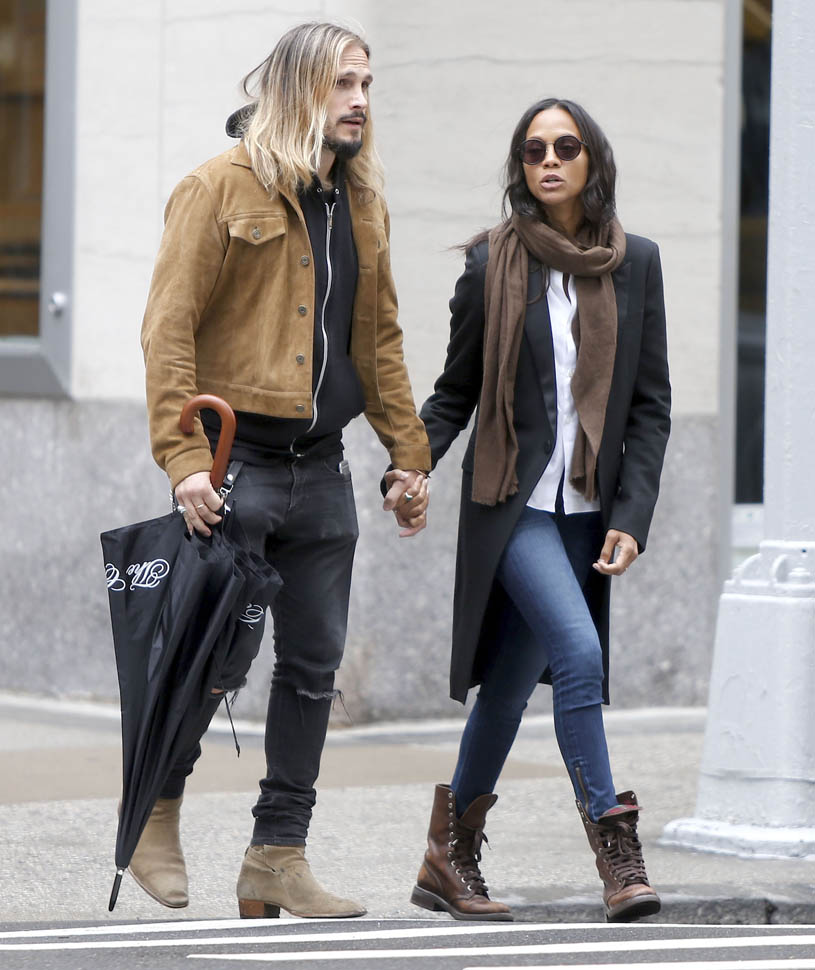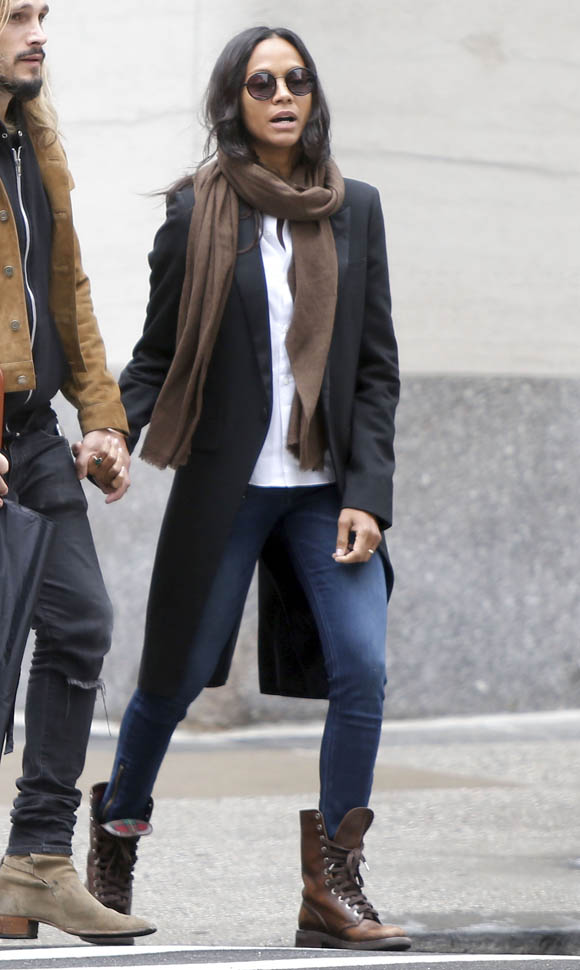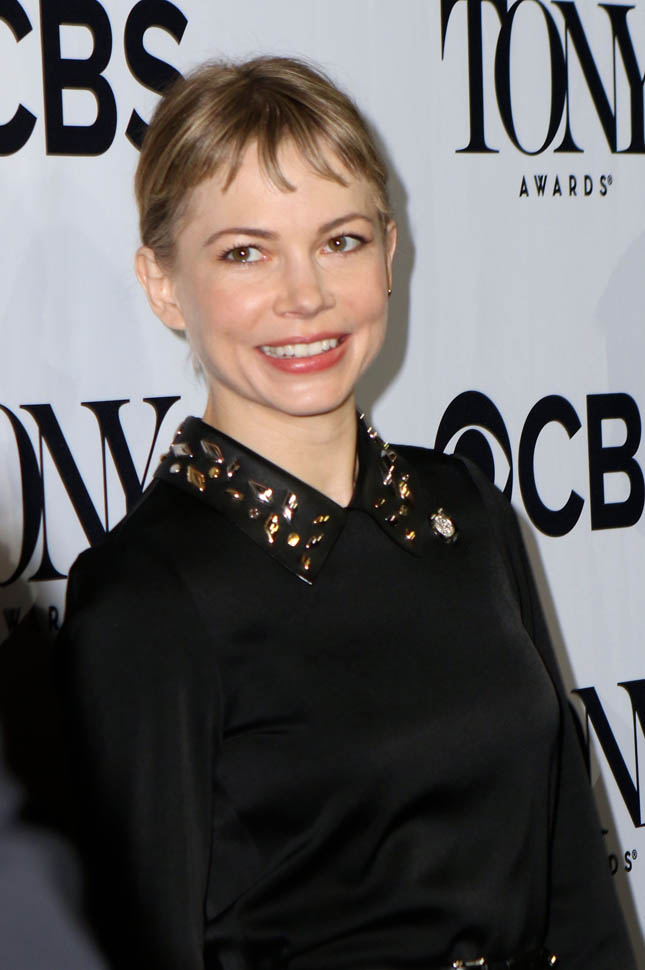Zoe Saldana’s 1st appearance since Nina controversy


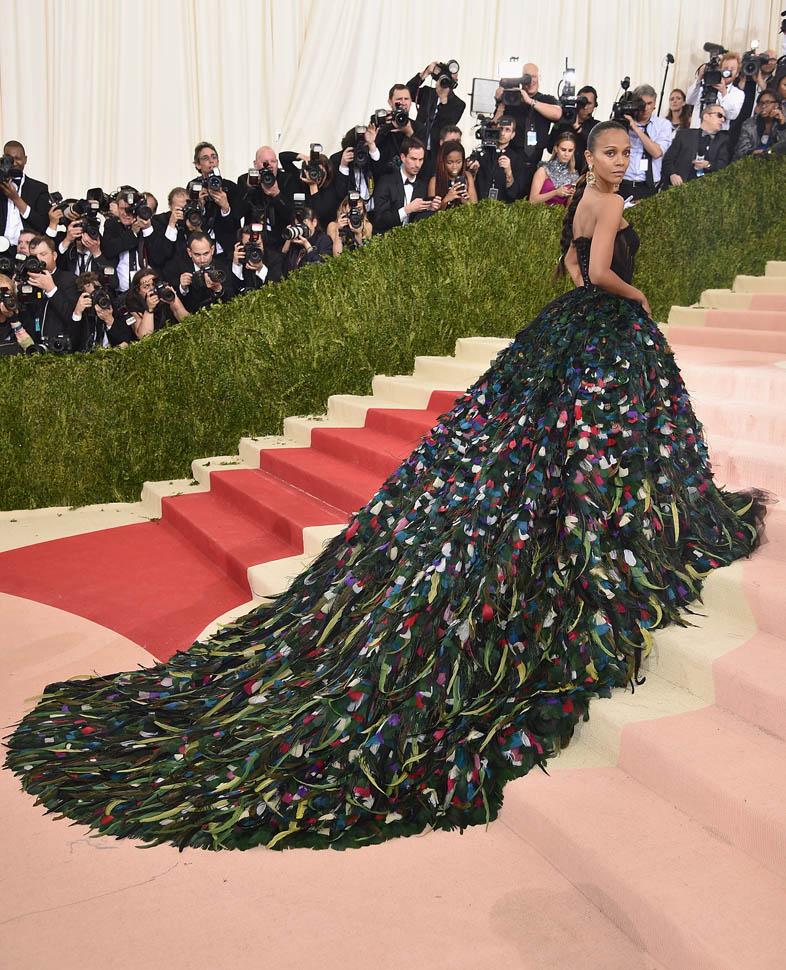
Zoe Saldana made her first big public appearance at Monday’s MET Gala since the controversy surrounding her role as Nina Simone and the release of the film Nina. When I first saw her gown, I thought “damnnn girl.” It’s STUNNING. I simultaneously want to wear it and have a picnic on it. I’m not mad at the gown at all. But I am still mad at Zoe. I’m still disappointed in her for taking on a part she had no business playing. I’m still pissed at the producers of the film for completely disregarding the cultural significance of Nina’s appearance and delivering a slap in the face to Simone’s legacy.
There have been plenty of think-pieces and articles criticizing the film ever since the casting was announced but the only piece of writing you need to read on why Zoe Saldana was a horrible and offensive choice for this role is Ta-Nehesi Coates’ essay for The Atlantic called, “Nina Simone’s Face.” It’s a beautifully written, poetic take on the whole mess. He outlines the significance of Nina’s features and her audacity to be unapologetically black and beautiful in a time when those two words were not often correlated. Here’s his mic drop statement:
There is something deeply shameful in the fact that even today a young Nina Simone would have a hard time being cast in her own biopic.
I could just quote Ta-Nehesi for the rest of this article but since the movie’s release has set off a new wave of backlash, I should note that I have not seen the film. I refuse to see it. Celebs like Queen Latifah and Paula Patton publicly defended Saldana and told us all to watch the movie before passing any judgements. Last week, Sarah reviewed Nina and called it a “deeply misguided film,” and “flawed at every possible level.” Let me quote Ta-Nehesi one more time:
Nothing about the quality of Nina can actually counter the problems inherent in its very inception. Perhaps more importantly, in some deep way, black women have already seen Mort’s film. Indeed they’ve been seeing it all their lives.
His point is that a film can be great and still be inherently racist. So, it’s even worse that Nina is not a great film but if it was, I would still object to its existence.
Look at Zoe Saldana. She is undeniably gorgeous. It’s undeniable because no one would debate you on her beauty the way that Viola Davis’ “classical beauty” was debated in the New York Times. Click here for a refresher. Zoe has what people would call the opposite of a ‘Jackson Five nose.’ (Shout out to Formation when Beyoncé sings “I like my Negro nose with Jackson Five nostrils.”) Zoe’s nose is not Nina’s nose. Nina had the kind of nose that has historically been mocked. Zoe’s skin is light enough that it’s not offensive, just exotic. Especially when it comes to black women, this is what the industry thinks is beautiful.
So, the point of all this outrage is that the clueless casting directors and producers of this film ignored one of the most significant facts about Nina Simone’s career: her skin, her face and her overall appearance were integral to her influence on the black community. When Nina sang “To Be Young, Gifted and Black” it not only became a civil rights anthem but it gave black women who looked like Nina permission to feel beautiful, permission to feel excellent. The song was released in 1969, when the Black Power movement was in full effect and Nina became the voice of black pride when those voices were being silenced, ridiculed and shamed. Through her music, Nina reinforced the belief that you could be black and gifted, which was a foreign concept for most white people in 1969. Think about the time. She was so BADASS. Here’s Nina taking about the song and performing it live at Morehouse College.
I mentioned Queen Bey earlier. As a millennial black woman, celebrities like Beyoncé, Halle Berry and Tyra Banks have been the standard of beauty for basically my whole life. Growing up, I thought my skin was too dark to be beautiful and I’m closer to Kerry Washington’s tone than Lupita N’Yongo’s. The colourism issue is a glaring problem that black women in Hollywood have to deal with on the regular. Nina Simone’s daughter told Time that she remembers Nina grew up worrying that she was “too black” and her nose was “too wide.” Those same concerns are probably echoed in casting rooms all the time. That type of black woman is consistently overlooked by Hollywood, so to see a light-skinned woman like Zoe with traditionally “white” looking features get this role is especially cringe-worthy. Zoe Saldana is not white but she’s arguably been given opportunities because her beauty is more palatable than an Adepero Oduye or an Uzo Aduba.
Zoe is going to move on from Nina’s poor reviews. The controversy will probably die down soon and we’ll focus on her hot husband, their adorable twin boys and the Guardians of the Galaxy sequel. She will come out of this unscathed. Don’t get me wrong, before all of this, I really liked Zoe Saldana and I don’t think she deserves the bulk of the blame. The fact that Zoe played Nina Simone doesn’t make me wish any ill will on her or her career but I don’t want the conversation about colourism in Hollywood to end.
If you want to learn more about Nina Simone’s real life and legacy, please watch the exceptional documentary What Happened Miss Simone?
Also attached - Zoe out in New York yesterday with her husband.

